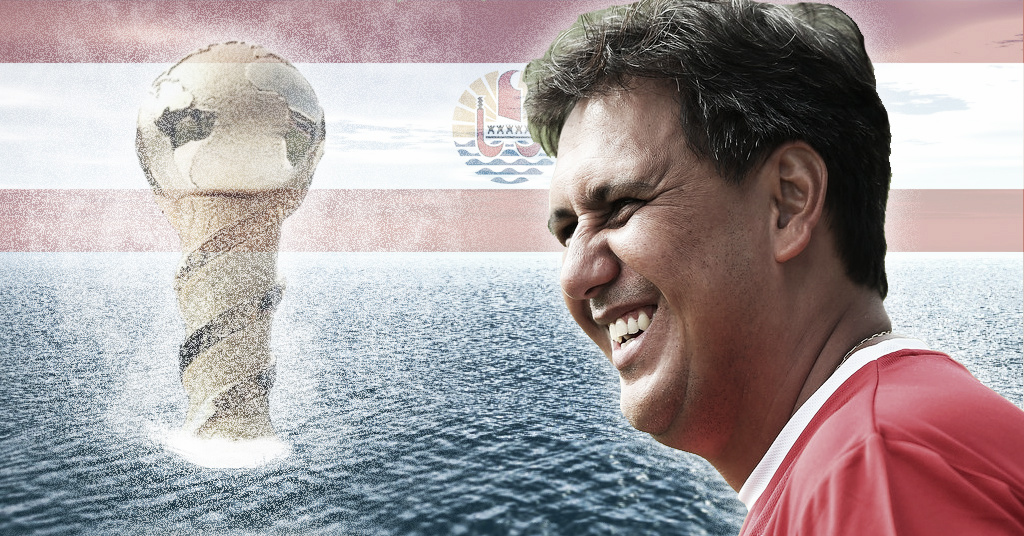Brazil won the Confederations Cup, but the competition had a different champion off the field. By scoring a goal against Nigeria, Tahiti achieved something much more important than wins and losses and took an enormous step towards the future, towards the dream of professionalizing football in the country. The coach of the Tahitian team, Eddy Etaeta, gave a class in humility in Brazil, handing out tickets so underpriviliged children from the favelas of Rio de Janeiro could see the game against Spain in the Maracanã, giving typical Tahitian necklaces as gifts to opponents before every game, acknowledging every journalist and expressing his gratitude for the affection from the Brazilian fans. In his exclusive interview with SuperFC, Etaeta talked about realizing the dream on Brazilian soil and everything that participating in the Confederations Cup meant for Tahiti, as well as discussing a future that holds more dreams and objectives for the football of his country.
Tahiti enchanted Brazil for the humility displayed and the completion of a dream. You showed gratitude for Brazil, but it is us who are grateful for Tahiti. What did it mean to have lived this historic moment?
It was a fantastic moment. A dream. Sport and football can teach a lot about life. And for me, we must exemplify both sporting and human values. Away from the game, I wanted my team to be composed as men of truth, not just as footballers. Football is, above all, a team sport and in order to play well together, especially against teams stronger than ours, it was vital to be a team that displayed those sporting and human values.
Tahiti went six years without a coach until [you] took the role and brought Tahiti to the greatest title in the country’s history, the OFC Nations Cup, and participated in the Confederations Cup, where the team scored an historic goal. In my opinion, as well as that of many other journalists, you are the best coach in the history of the country and you have done a historic job. What is the significance of this moment and these victories for Tahiti, and, in particular, for you?
We have been building our football since 2000, with an idea of development which involved youth players and the training of coaches. And today we begin to reap the rewards of our hard work. So, I focus on the work of creating the team, and, for me, the future will certainly be better. I have two main missions with the Tahiti Football Federation: to be head coach and trainer, but there still is a whole team to help me with my work and continue on our path.
Outside of your achievements in the Confederations Cup, the most important thing is the future. You, together with the federation, yearn for the professionalization of football in your country and Tahiti, in fact, is now making alliances with thoughts towards the future. Was this always Tahiti’s objective with the participation in the Confederations Cup?
Yes. Effectively, my objective is to have professional players in our national team. If we want to be more competitive and improve, we clearly must have more professionals and not just Marama Vahirua (who retired after Tahiti’s participation in the Confederations Cup). From here on forward, we will begin to unite our efforts with professional clubs.
What is the main challenge for Tahiti on the path to the professionalization of football in the country and growth as a footballing nation?
For the development of our football, we must export our local players and this is our goal. Because in Tahiti we never will be able to have a professional league. It is impossible. We are going to develop young players and send them abroad, and that is totally possible.
We all have dreams. What is your dream. Would you like to coach a big team?
It is true that we all dream of coaching an important football team. Why not? As a plan for my career (as a coach) it is very interesting to coach a professional club in the future. But for now I must continue working and above all developing football in Tahiti. We will see later how will my career will be.
Translated from the interview in Spanish by Miguel G. Robayna (VAVEL España)
Origina Interview in Portuguese by Gabriel Pazini (VAVEL Brasil)










































